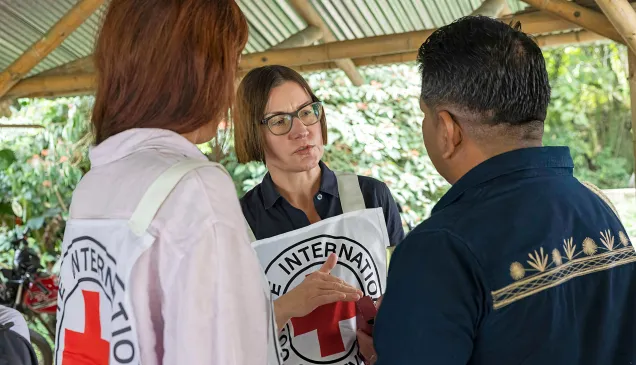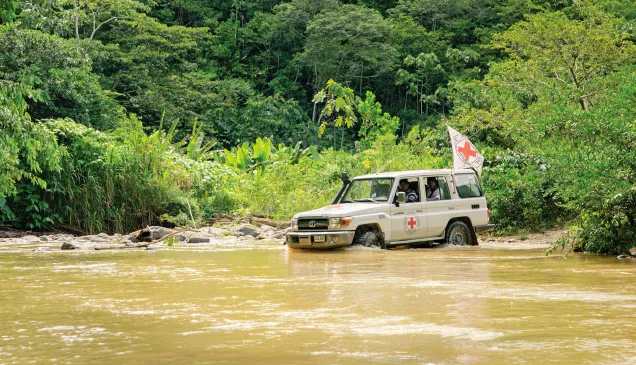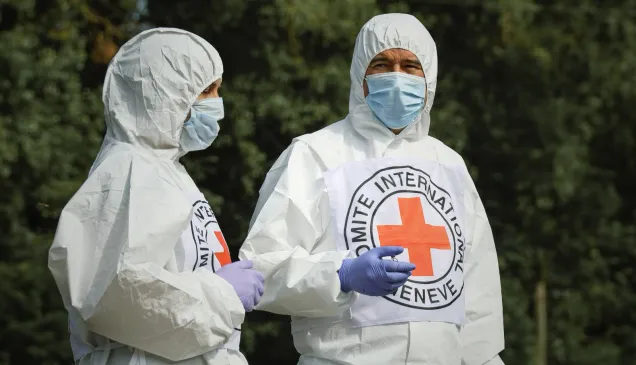South Africa: Humanitarian Diplomacy

From 25 February to 1 March 2023, the ICRC Pretoria Regional Delegation welcomed to South Africa, the ICRC’s Regional Director for Africa Mr. Patrick Youssef for a three-day visit to the Southern African region.
Having concluded a tour of ICRC’s humanitarian response in Ethiopia, Mr. Youssef provided a first-hand account of the continuing humanitarian needs in Tigray and the imperative to secure the gains of the Peace Deal concluded in November 2022. Meeting with Acting Deputy Director-General representatives of the South African Department of International Relations and Cooperation (DIRCO), Mr. Youssef recognized the role that the South African authorities played in brokering this Peace Deal and explained:
During his visit, Mr. Youssef travelled to Gaborone, Botswana, where he met with the Executive Secretary of the Southern African Development Community (SADC), Dr. Elias Magosi, to discuss a series of humanitarian concerns in the region. The SADC peace mission in Mozambique and the training of member states through its Regional Peacekeeping Training Centre in Harare, Zimbabwe, were at the heart of the discussions. Noting the evolving peace and security landscape in the SADC region and considering the SADC mission in Mozambique, the two institutions reaffirmed their commitment to cooperate on issues of common interest, including training in international humanitarian law (IHL), and agreed to begin a consultation process towards the reformulation of a memorandum of understanding between the SADC Secretariat and the ICRC.
The ICRC Pretoria Regional Delegation’s humanitarian diplomacy work seeks to promote IHL and explain the realities of armed conflict for the affected populations by engaging in a humanitarian dialogue with SADC, governments of the region, the diplomatic community, and think-tanks.
Mr. Youssef also visited two ICRC projects that are being implemented with several partners in South Africa. The projects showcased innovations in responding to the humanitarian challenge of missing migrants and those at the Lindela Holding Facility in Krugersdorp, South Africa. To scale up its protection of family links (PFL) interventions, the ICRC has deployed an innovative GSM phone system which allows migrants in the facility to maintain contact with their relatives. He also met the University of Witwatersrand’s Faculty of Health Sciences and the Johannesburg Mortuary staff, where the ICRC’s African Centre for Medicolegal Systems (ACMS) showcased the role of forensic isotopes in the multidisciplinary search process to locate families of the unidentified persons.



